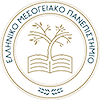Module Title: Applied Mathematics
Teaching hours: 52
Credits: 7,5
Semester: 1st
Instructor: Mageiropoulos Emmanouel Professor
Course Objectives
PART A .Review of Linear Algebra I
■ Linear spaces (of finite dimension).and Matricial Calculus
1 Linear independence and basis
2 Column space and nullspace. .
3 LU and QR decomposition
4.1 Elimination matrices and LU decomposition
5.Inverses
6.The Fundamental Theorem of Linear Algebra
7.Eigenvalues and eigenvectors
8.Diagonalization and powers of A
9 Symmetric matrices
10.Singular value decomposition (Cholesky factorization)
■ Algebraic derivation and special topics of Numerical Linear Algebra.
1.The SVD Analysis
2.The Principal Axes Theorem and its Geometric interpretation.
3.The Least squares approximations
4.Useful Inequalities
5,Review of Comlex Numbers & the n Primitive Roots of Unity
PART B . Review of Probability Theory I.
1. Probability space , Conditional probability ,Independence and Random variables
2. Examples of random variables
3. Expectation and moments
4.Function of random variables
5 Joint statistics and Conditional expectation
6. Gaussian random variables
7.Estimation and Estimators
8. Markov chains. . . . . .
PART C.Some Important Distributions
1. Bernoulli trials
2 Binomial random variables
3 Geometric random variables
4 Poisson random variables
5. Poisson process
6. Uniform random variable
7. Exponential random variable
8. Gamma random variable
PART D. Basic Theory of the Discrete Fourier Transform
1.The Discrete vs the Continuous FT
2.The Fast FT (in the sense ofCooley & Tuckey)
3.The “Butterfly” Flow Chart (in the sense of G.Strang)
4.Discrete Convolutions
PART E. Examples and Applications
BIBLIOGRAPHY
(a) In Greek and/or translated from the English edition
1.D.Karayannakis, “Introductory Linear Algebra & Applications”, Ziti press,2013
2.G.Strang, “Introductory Linear Algebra & Applications”, Crete University Press,2013
3.Hoel, Port& Stone,”Introductory Probability Theory”, Crete University Press, 2011
4.V.Dougalis, Noutsos & Hadzidimos,
(b)In English
Master Vibot & Computer Vision Module: Applied Mathematics
Université de Bourgogne – IUT Le Creusot, Laboratoire LE2I, UMR CNRS 6306.
